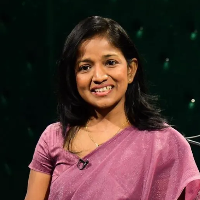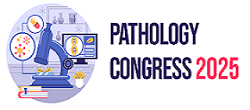
University Hospital Plymouth NHS Trust, UK
Title : Bridging the Gap in Brain Tumour Management: Pathological Insights and Healthcare Innovations
Abstract:
Background: Brain tumours present a multifaceted challenge in
oncology, characterized by complex tumour behaviours and significant diagnostic
dilemmas. Survival outcomes hinge on advances in pathology and treatment
approaches. This presentation aims to dissect the pathological underpinnings of brain tumours,
scrutinize diagnostic challenges, and evaluate the
impact of recent healthcare innovations on treatment efficacy and patient
survival.
Layout:
1. To explore
the pathological perspectives of brain tumour
behaviour influencing survival rates.
2. To assess diagnostic challenges in brain tumour
pathology.
3. To review the latest healthcare innovations and their implications on the management of primary brain tumours.
Reflection through landmark
studies:
·
Analysis of brain tumour survival
data from the CONCORD-3 study.
·
Evaluation of evidence
supporting craniotomy and spinal irradiation.
·
Comparative review of clinical trial outcomes, focusing
on the PARADIGM and NOA 09 trials.
Investigation into the pathophysiology of brain tumour development and unrecognized treatment responses.
o The presentation will reveal nuanced
insights into tumour
behaviour and survival
outcomes.
o It will highlight key diagnostic challenges in brain tumour pathology and strategies to overcome them.
o The assessment of clinical trials
will offer a critical view of current
and emerging therapeutic strategies.
o The
synthesis of pathological insights with healthcare innovations, such as
understanding the tumour
microenvironment, provides a promising avenue towards improving brain tumour
management.
o Emphasis
on interdisciplinary collaboration and continuous innovation in diagnostics and treatment protocols
is pivotal for enhancing patient
survival and quality of life.
·
Implications for Healthcare Innovation:
o Integrating pathophysiological understanding with treatment response can lead to
tailored therapeutic interventions.
o Innovations such as precision
medicine and targeted
therapies that consider the tumour microenvironment could
revolutionize the management of primary brain tumours.
A multidisciplinary approach
is essential to navigate the complexities of brain tumour pathology and to harness the full
potential of healthcare innovations.
Biography:
I tried to recall my very first lesson. What I could remember was that I was very free and playing independently where no one tried to teach me anything. My very first teachers and my beloved parents in my life let me learn by myself. I gathered the secret of my creativity and innovations later in life. My innate creative abilities were fertilized during that golden period of my life by my dear parents.
There were specific dos and don’ts that I had to follow since my very early childhood. I tried my best to follow those rules because I found when I broke the rules, my parents were not happy, and I was afraid to lose their love. I was too small to realize that all the rules and punishments were for my benefit. So the lesson I gathered from my early childhood was; if you want to correct someone, first, you should love that person. So that the child will feel that you love him and then you try and correct his mistakes. He will strictly follow all the rules and regulations because he will never let things happen which could cost him your love. That means that as a University teacher, I should be able to offer love and affection to all University students as if for my own child.
I was given freedom to play through out the day when I was little older in my pre school period. During playing I learnt to respect my team mates and I had to accept defeat and win equally. I remember some of my friends were not willing to accept failures. They always wanted to win. They tried cheating and became unpopular and some times spoiled the whole game. I used to learn through experience while playing. I understood that cheating is very bad and I never ever cheat anyone in my life afterwards. Even after forty years I do remember the lessons I learnt during my early childhood. So as University teachers we should address students’ childhood experiences when they found difficulties in learning and adaptation to University life. Each and every student will have different child hood experiences and those are unique to them.
